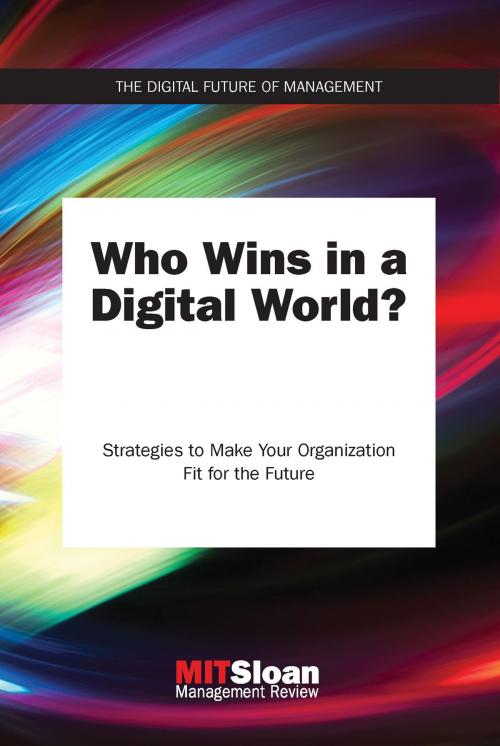Who Wins in a Digital World?
Strategies to Make Your Organization Fit for the Future
Business & Finance, Management & Leadership, Management| Author: | MIT Sloan Management Review | ISBN: | 9780262352659 |
| Publisher: | The MIT Press | Publication: | February 22, 2019 |
| Imprint: | The MIT Press | Language: | English |
| Author: | MIT Sloan Management Review |
| ISBN: | 9780262352659 |
| Publisher: | The MIT Press |
| Publication: | February 22, 2019 |
| Imprint: | The MIT Press |
| Language: | English |
How organizations can adapt to a constantly changing business environment by being flexible but focused, embracing change, and moving fast.
In the new digital world, the unknowns are never-ending. Our ability to embrace the demands of change has become a prerequisite for success. It's not easy. We don't work the way we did last year. Next year, it will all change again. If an organization doesn't embrace the realities of change, it will be under siege from those that do. Who Wins in a Digital World explains how organizations can adapt to a constantly changing business environment by being flexible but focused, embracing change in all its messiness, and moving fast.
In articles that originally appeared in MIT Sloan Management Review, experts from business and academia discuss digital adaptability, explaining how both organizations and individuals need the ability to excel in what their roles will become as technology and their competitive ecosystem evolve. They highlight strategies and mindsets that can foster change, including boldness in the face of digitization, a focus on collaboration, and an artificial intelligence game plan. And they explore the need for speed, with one contributor declaring: “Implement first, ask questions later (or not at all).”
Once an organization accepts the fact that technological change is ongoing and inevitable, it becomes more about opportunity and less about challenge. This book shows that change can be stimulating, exhilarating, and something to be welcomed.
Contributors
Stephen J. Andriole, Jacques Bughin, Thomas H. Davenport, Nathan Furr, Lynn J. Good, David Kiron, Edward E. Lawler III, Vikram Mahidhar, Paul Michelman, Jeanne Ross, Paul J. H. Schoemaker, Andrew Shipilov, Charles Sull, Donald Sull, Philip E. Tetlock, Stefano Turconi, Nicolas van Zeebroeck, Peter Weill, Thomas Williams, Stephanie L. Woerner, Christopher G. Worley, James Yoder
How organizations can adapt to a constantly changing business environment by being flexible but focused, embracing change, and moving fast.
In the new digital world, the unknowns are never-ending. Our ability to embrace the demands of change has become a prerequisite for success. It's not easy. We don't work the way we did last year. Next year, it will all change again. If an organization doesn't embrace the realities of change, it will be under siege from those that do. Who Wins in a Digital World explains how organizations can adapt to a constantly changing business environment by being flexible but focused, embracing change in all its messiness, and moving fast.
In articles that originally appeared in MIT Sloan Management Review, experts from business and academia discuss digital adaptability, explaining how both organizations and individuals need the ability to excel in what their roles will become as technology and their competitive ecosystem evolve. They highlight strategies and mindsets that can foster change, including boldness in the face of digitization, a focus on collaboration, and an artificial intelligence game plan. And they explore the need for speed, with one contributor declaring: “Implement first, ask questions later (or not at all).”
Once an organization accepts the fact that technological change is ongoing and inevitable, it becomes more about opportunity and less about challenge. This book shows that change can be stimulating, exhilarating, and something to be welcomed.
Contributors
Stephen J. Andriole, Jacques Bughin, Thomas H. Davenport, Nathan Furr, Lynn J. Good, David Kiron, Edward E. Lawler III, Vikram Mahidhar, Paul Michelman, Jeanne Ross, Paul J. H. Schoemaker, Andrew Shipilov, Charles Sull, Donald Sull, Philip E. Tetlock, Stefano Turconi, Nicolas van Zeebroeck, Peter Weill, Thomas Williams, Stephanie L. Woerner, Christopher G. Worley, James Yoder















